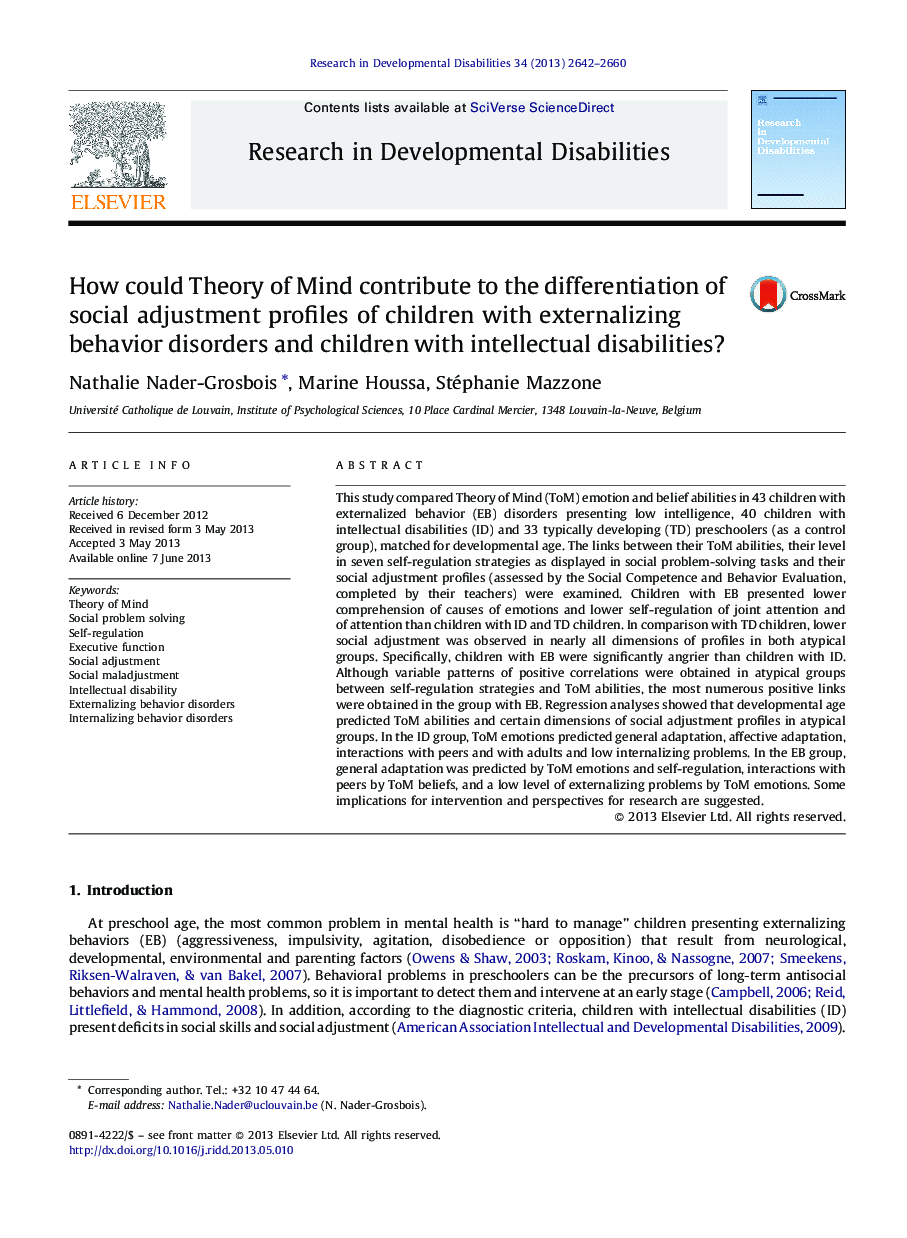| Article ID | Journal | Published Year | Pages | File Type |
|---|---|---|---|---|
| 10317742 | Research in Developmental Disabilities | 2013 | 19 Pages |
Abstract
This study compared Theory of Mind (ToM) emotion and belief abilities in 43 children with externalized behavior (EB) disorders presenting low intelligence, 40 children with intellectual disabilities (ID) and 33 typically developing (TD) preschoolers (as a control group), matched for developmental age. The links between their ToM abilities, their level in seven self-regulation strategies as displayed in social problem-solving tasks and their social adjustment profiles (assessed by the Social Competence and Behavior Evaluation, completed by their teachers) were examined. Children with EB presented lower comprehension of causes of emotions and lower self-regulation of joint attention and of attention than children with ID and TD children. In comparison with TD children, lower social adjustment was observed in nearly all dimensions of profiles in both atypical groups. Specifically, children with EB were significantly angrier than children with ID. Although variable patterns of positive correlations were obtained in atypical groups between self-regulation strategies and ToM abilities, the most numerous positive links were obtained in the group with EB. Regression analyses showed that developmental age predicted ToM abilities and certain dimensions of social adjustment profiles in atypical groups. In the ID group, ToM emotions predicted general adaptation, affective adaptation, interactions with peers and with adults and low internalizing problems. In the EB group, general adaptation was predicted by ToM emotions and self-regulation, interactions with peers by ToM beliefs, and a low level of externalizing problems by ToM emotions. Some implications for intervention and perspectives for research are suggested.
Keywords
Related Topics
Life Sciences
Neuroscience
Behavioral Neuroscience
Authors
Nathalie Nader-Grosbois, Marine Houssa, Stéphanie Mazzone,
